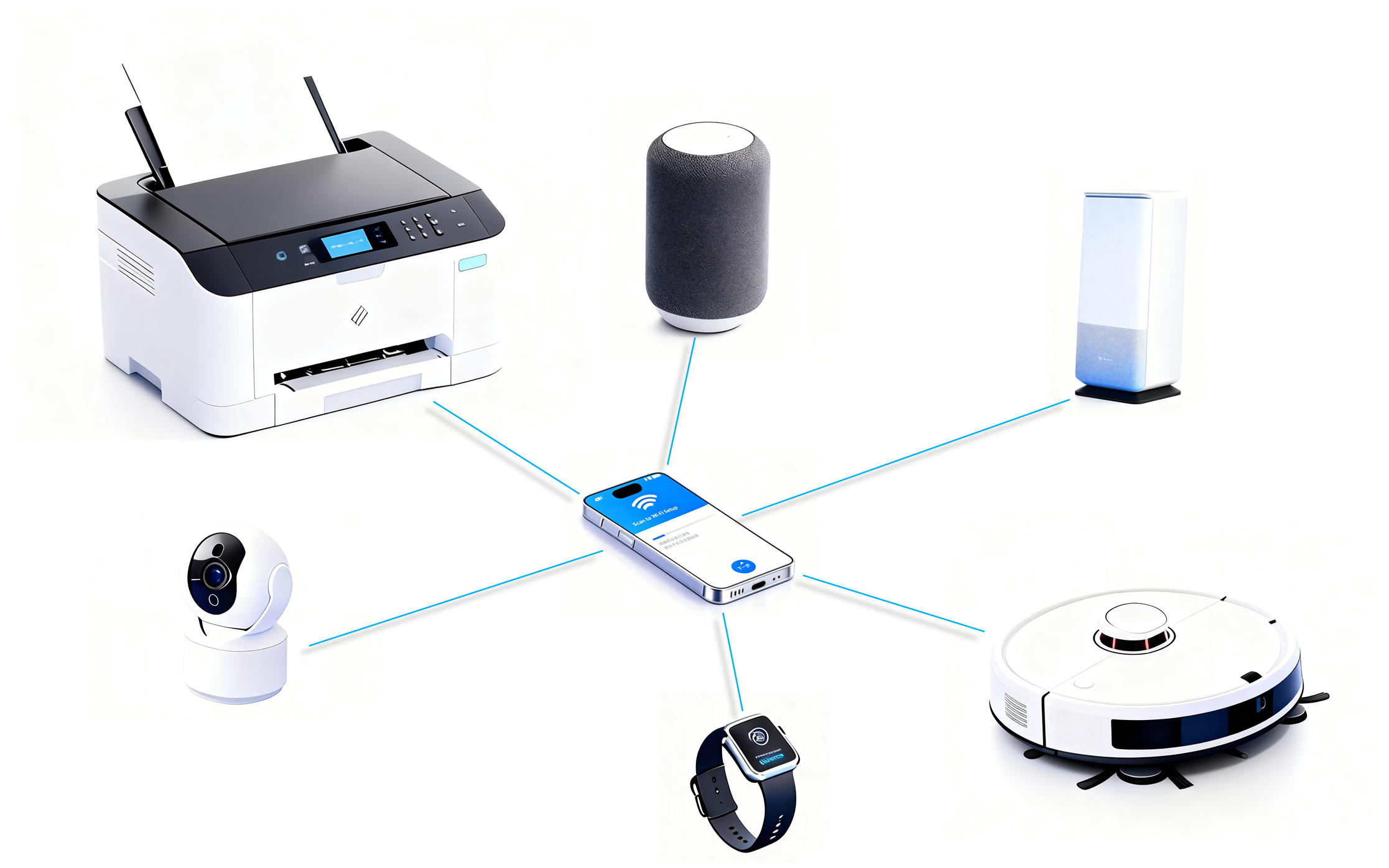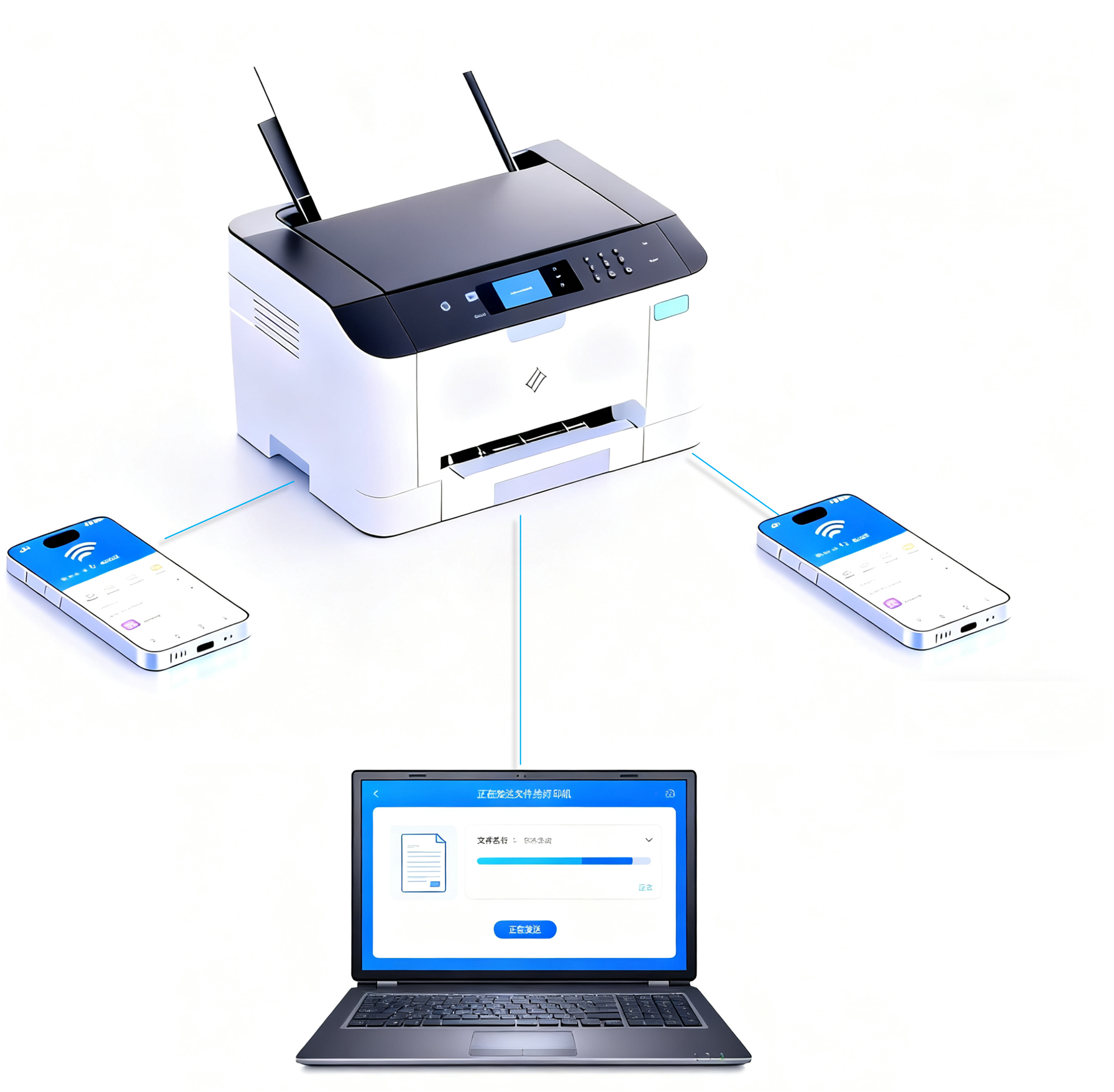Wi-Fi Direct (P2P)
Overview
Wi-Fi Direct, also known as P2P (Peer-to-Peer) is a communication protocol based on standard Wi-Fi technology. Its core feature is forming a 1:N star topology network structure (one GO connects multiple GCs) without requiring traditional routers or access points (APs).
Device Roles:
Group Owner (GO) : Acts as a soft access point (Soft AP), responsible for group management and data routing.
Group Client (GC) : A device connected to the GO, functioning similarly to a traditional Wi-Fi client.
P2P Device: A device not yet joined to a group, in a discoverable or pending connection state.
Typical Scenarios:
Mobile Phone as GO Controlling Smart Devices:
When a mobile phone acts as the Group Owner (GO), other devices (e.g., smart home terminals) serve as Group Clients (GCs). They directly form a local area network without routers. The GO device provides AP-like functionality, centrally managing intra-group connections and data relaying. This enables direct control of smart devices via the mobile phone (e.g., monitoring cameras or controlling appliances)

Smart Device as GO Supporting Multi-Terminal Tasks:
Mobile phones and PCs can simultaneously send tasks (e.g., document printing) to a printer

Provisioning:
A mobile phone delivers the router’s SSID and password to the printer via the P2P channel, enabling the printer to access the target router
Advantages
title_hide
Simple Connection
Device-to-device connection without routers or internet.
Supports automatic device negotiation for Group Owner (GO) and Group Client (GC) roles.
No user input of SSID/password required (supports WPS PBC/PIN configurations).
High Bandwidth & Low Latency
Based on Wi-Fi PHY layer, significantly higher transmission rates than Bluetooth.
Direct peer-to-peer links eliminating router hops.
Enhanced Security
Supports WPA2/WPA3 enterprise encryption.
Peer-to-peer transmission avoids cloud relay, mitigating privacy leakage risks.